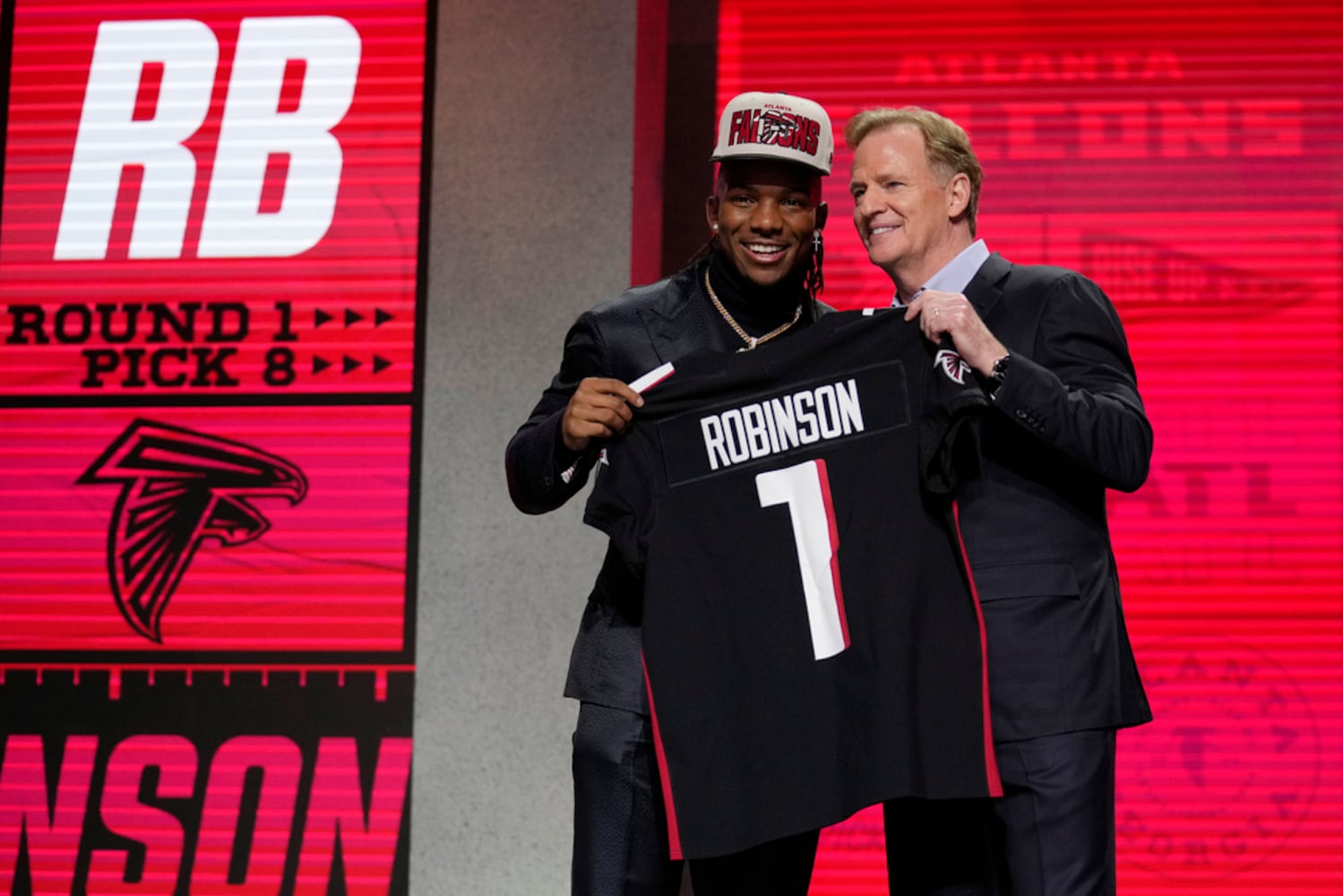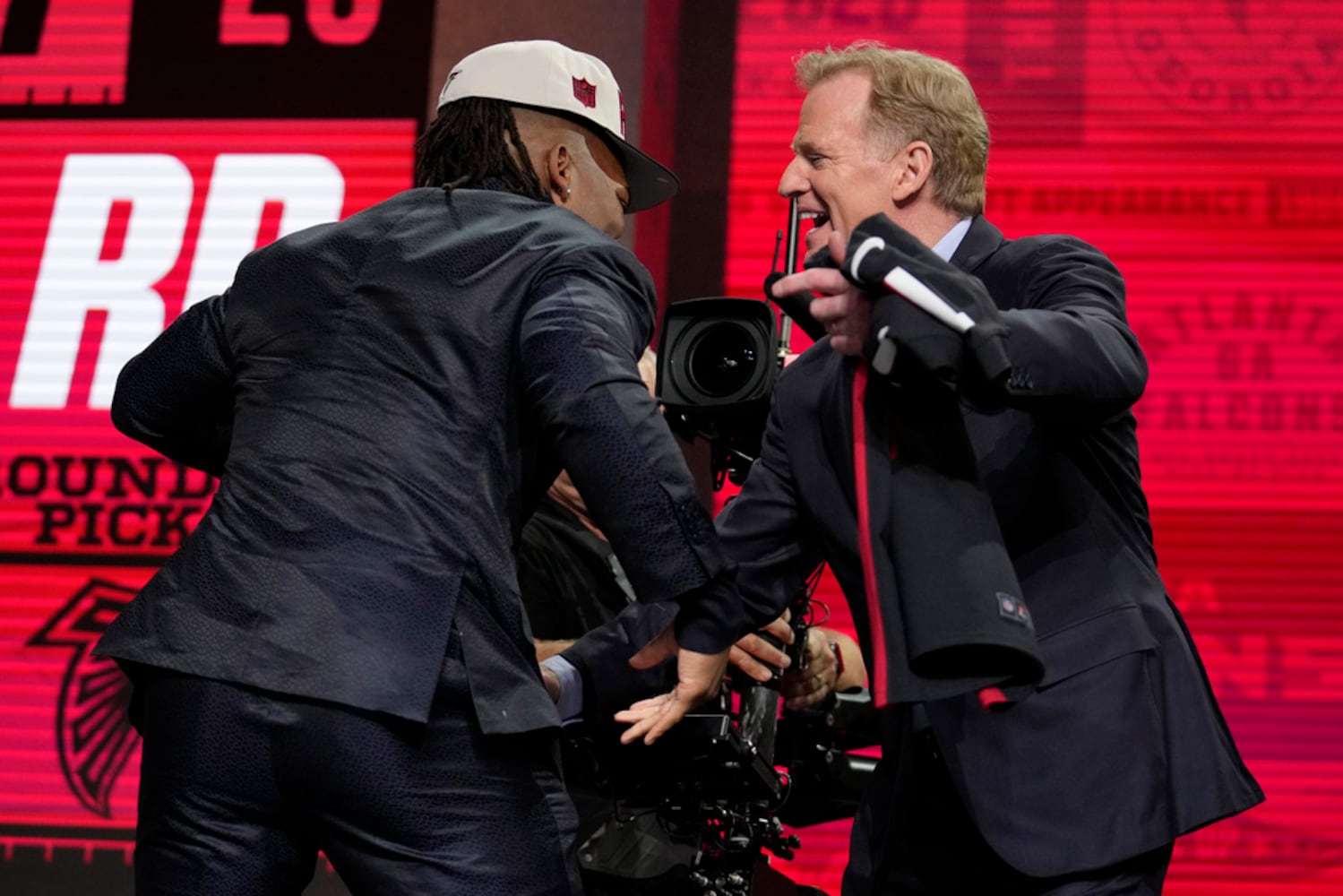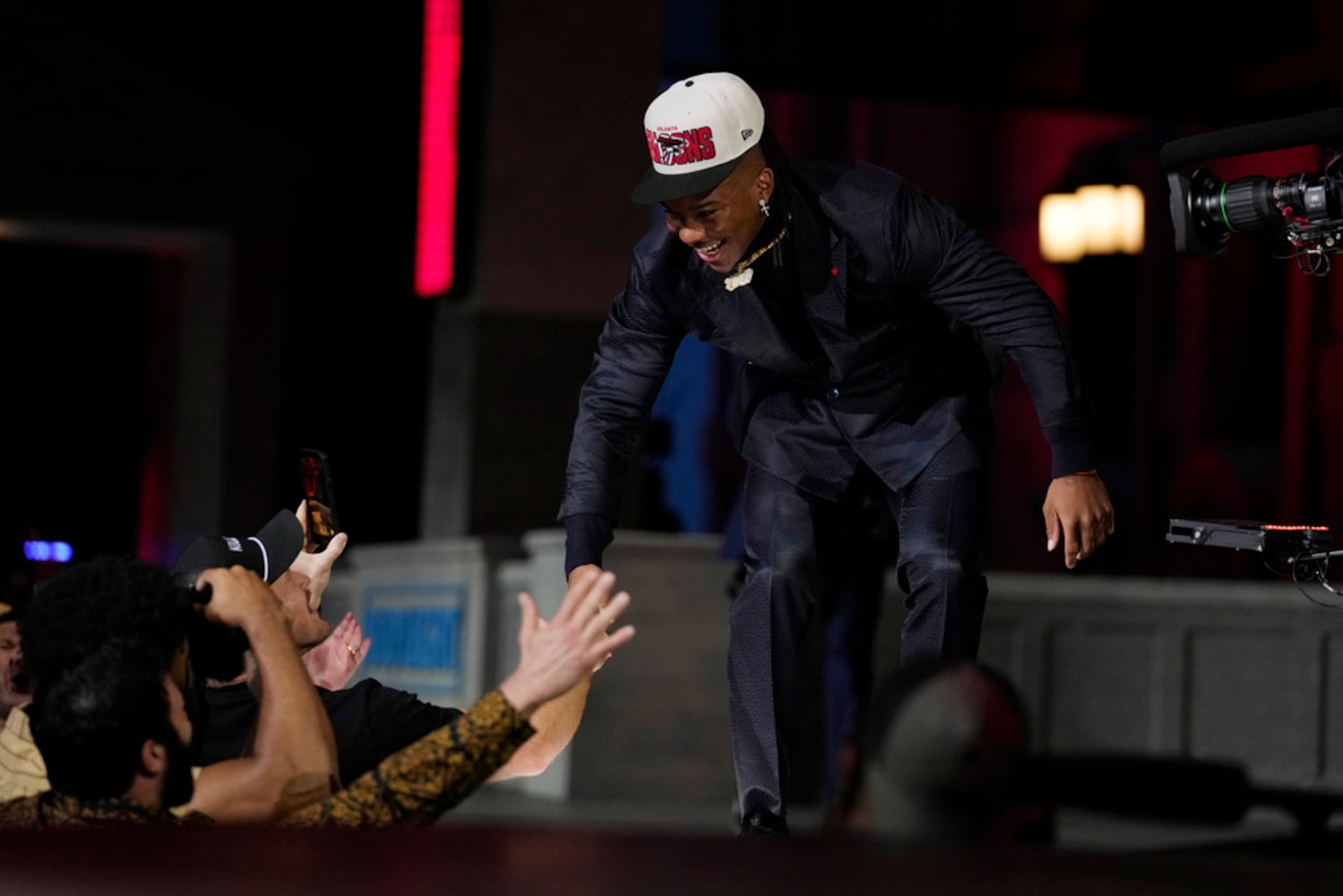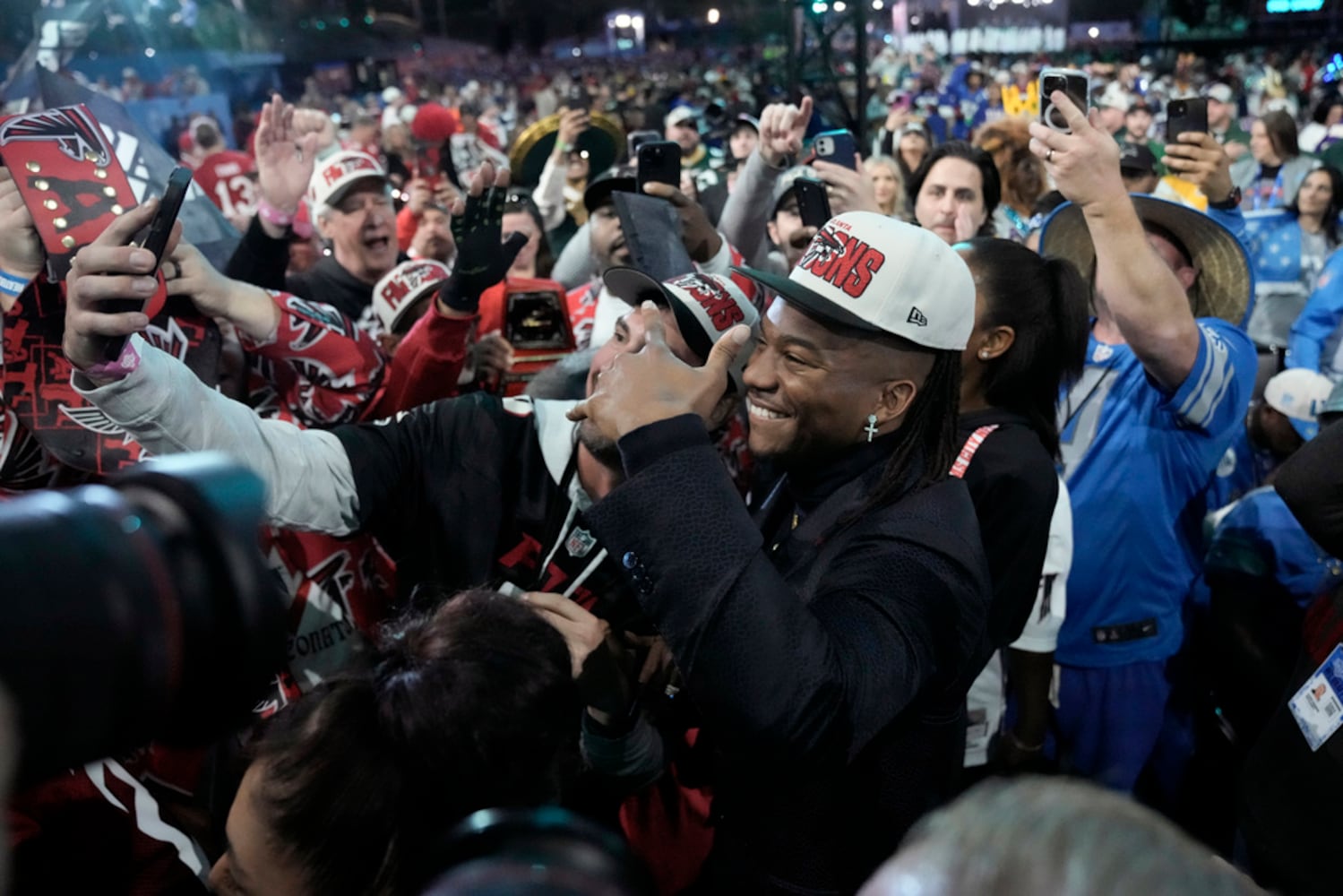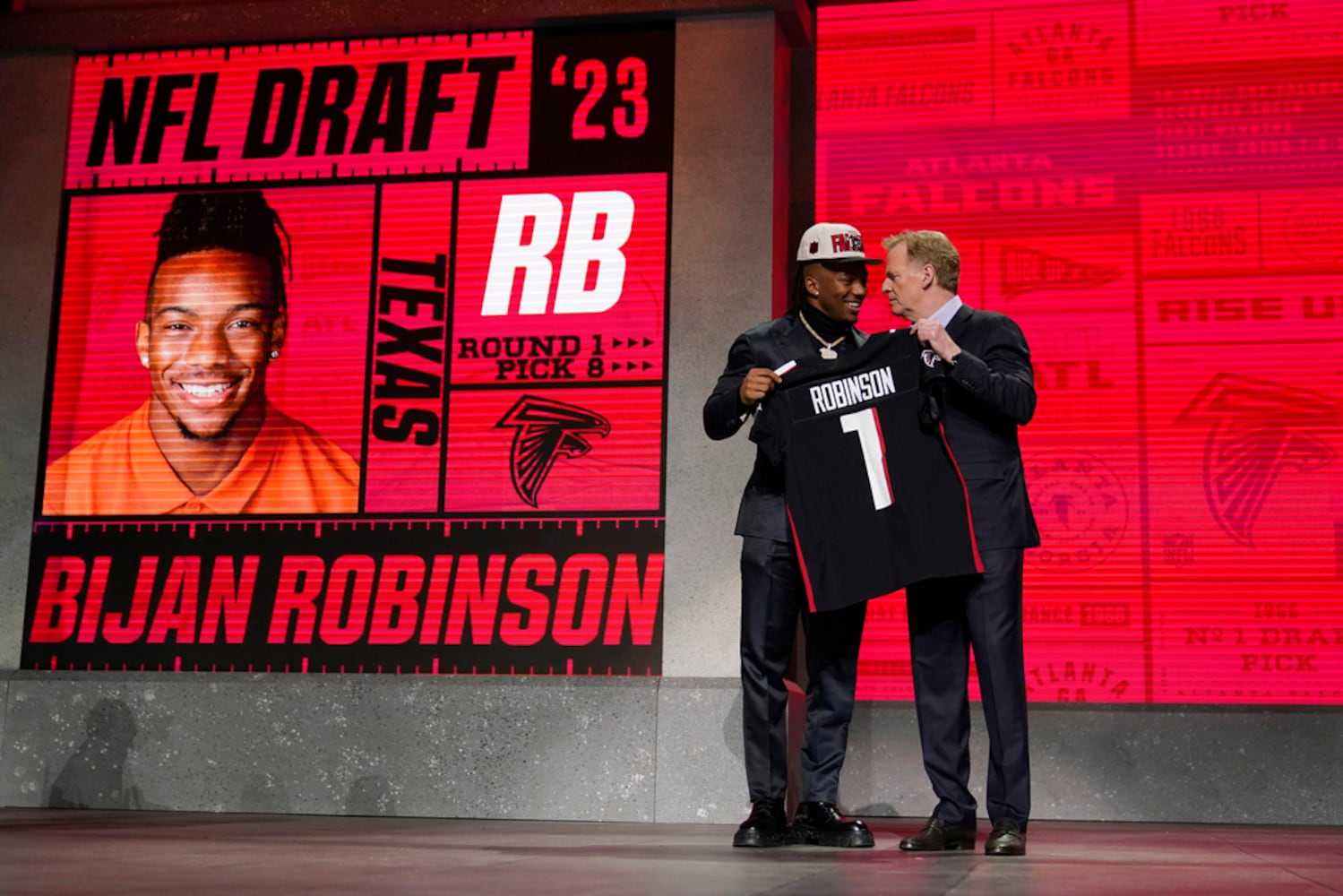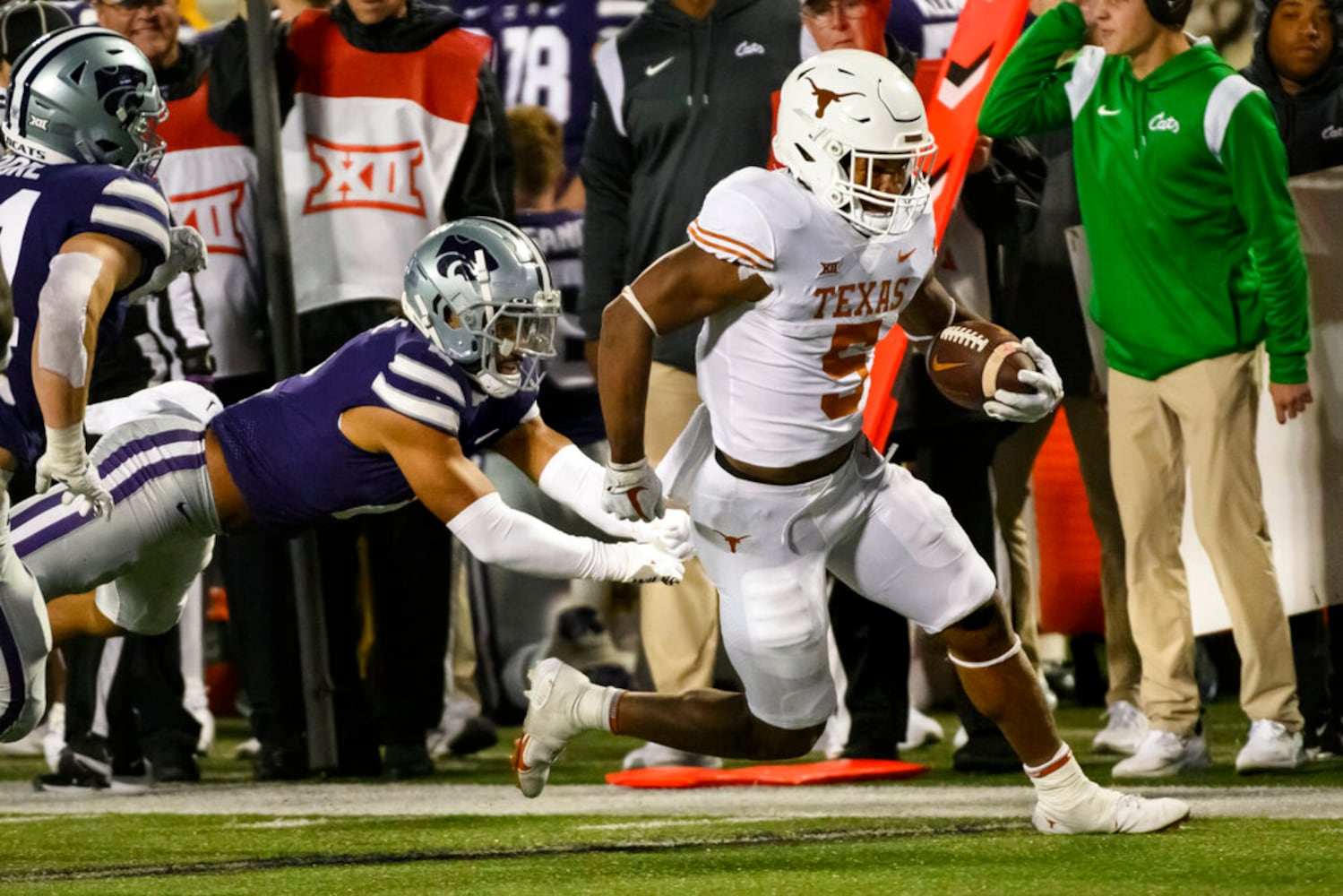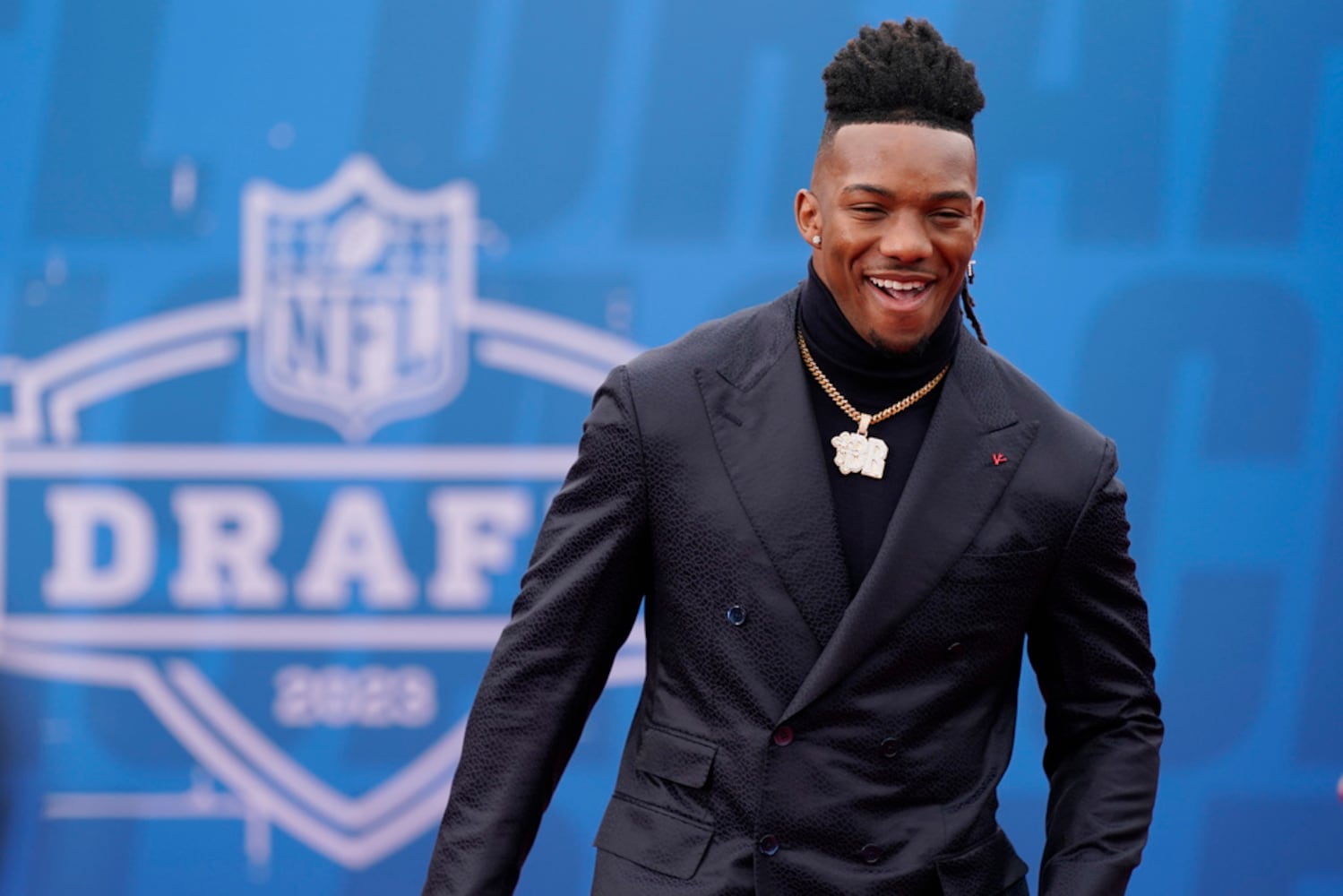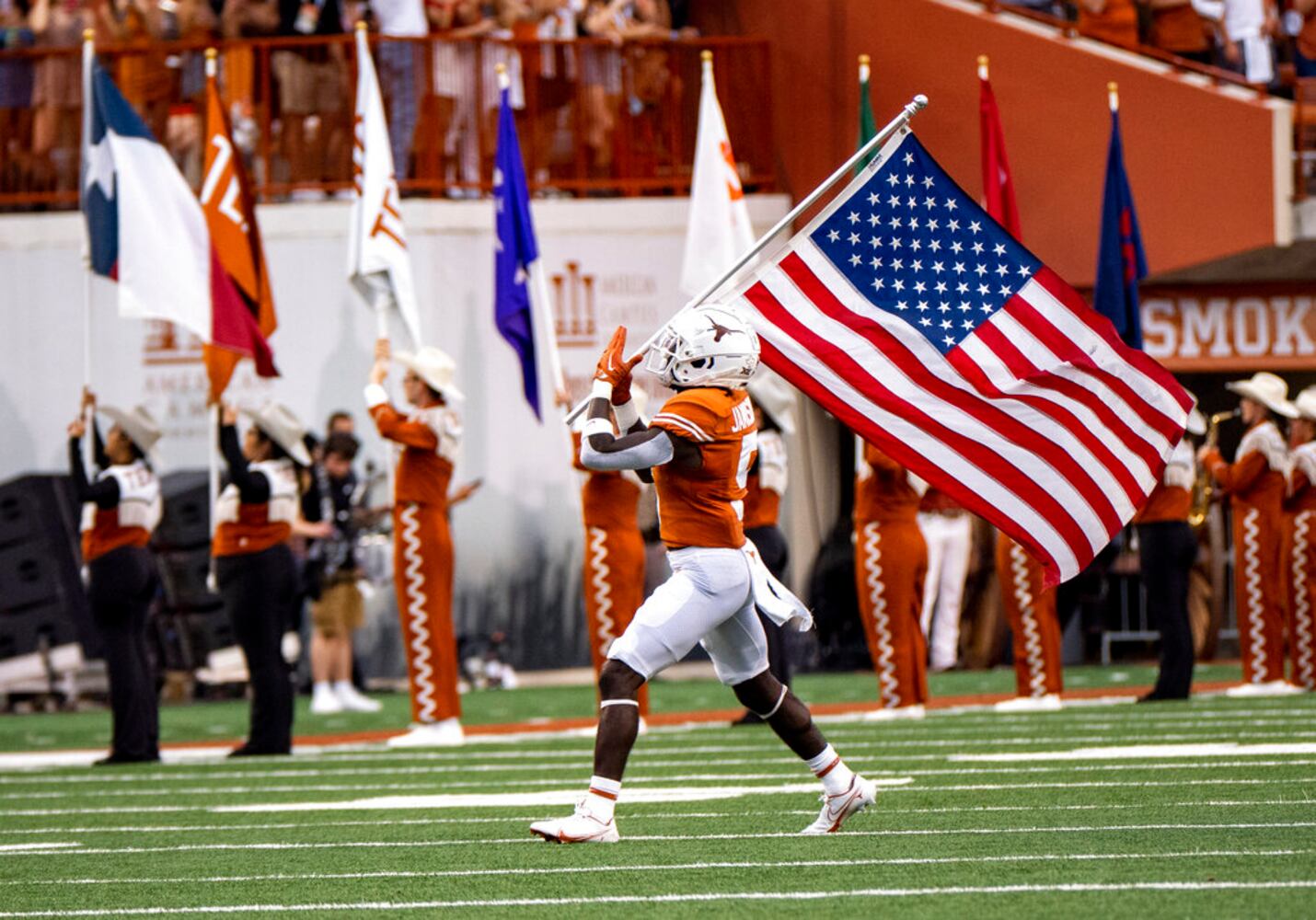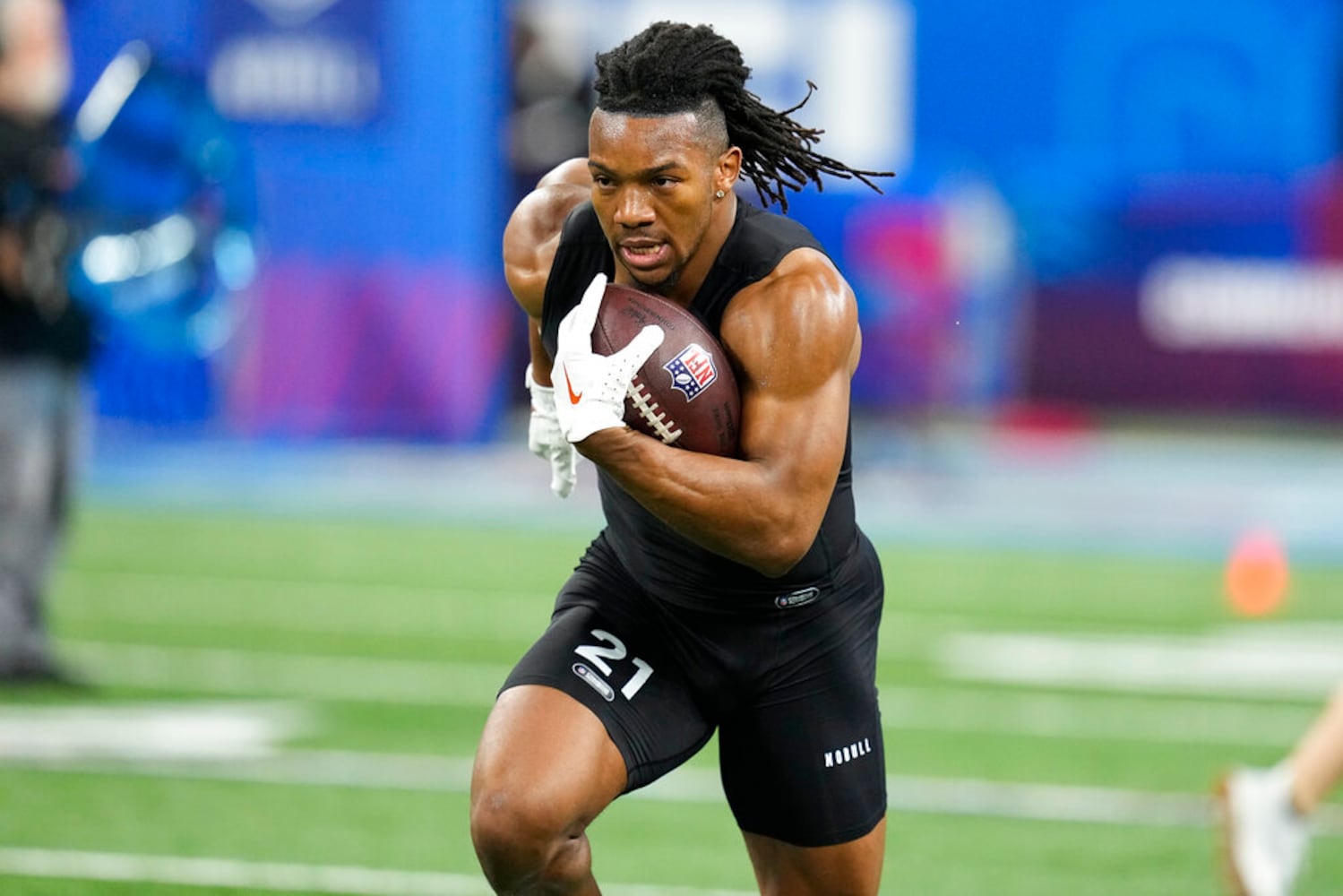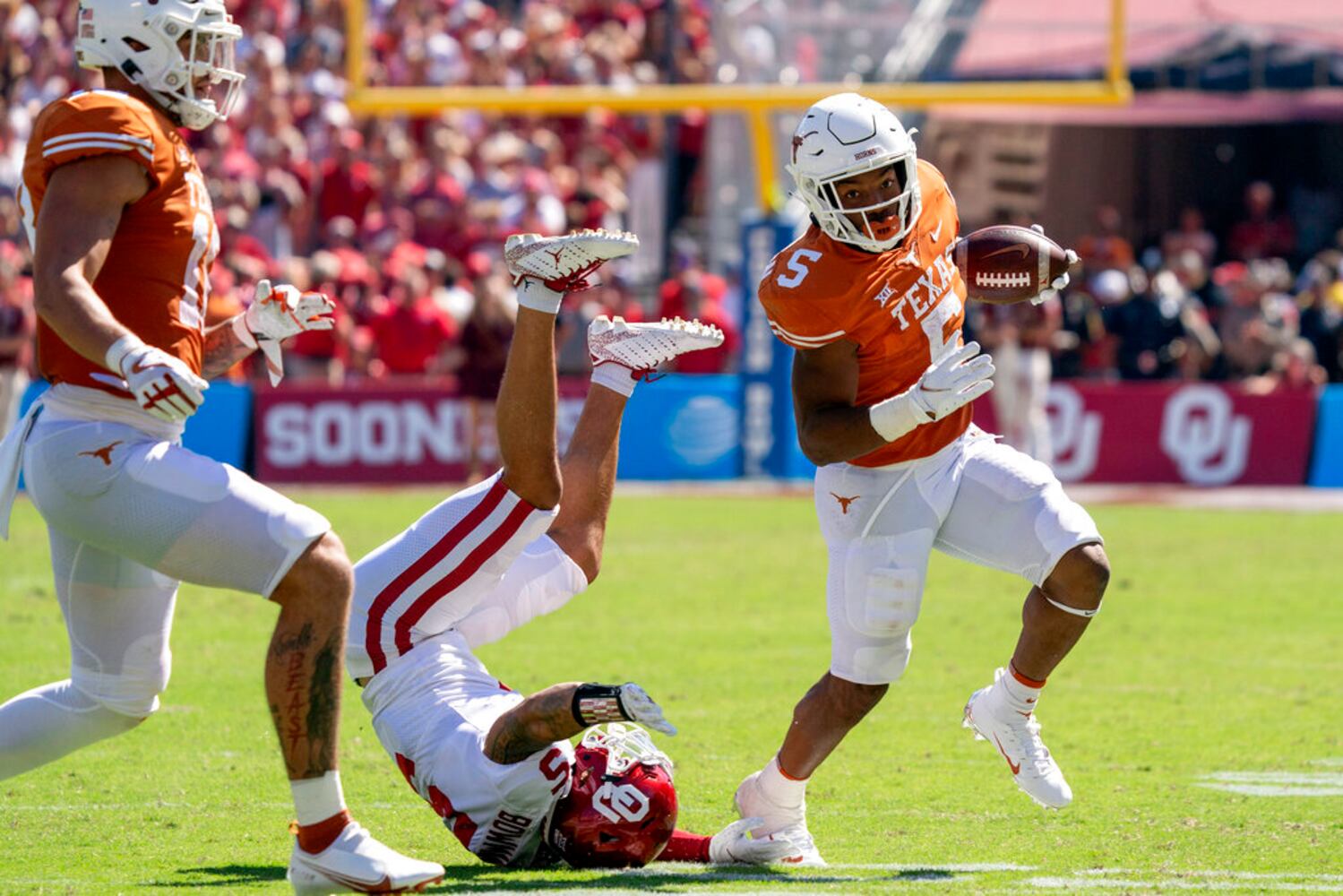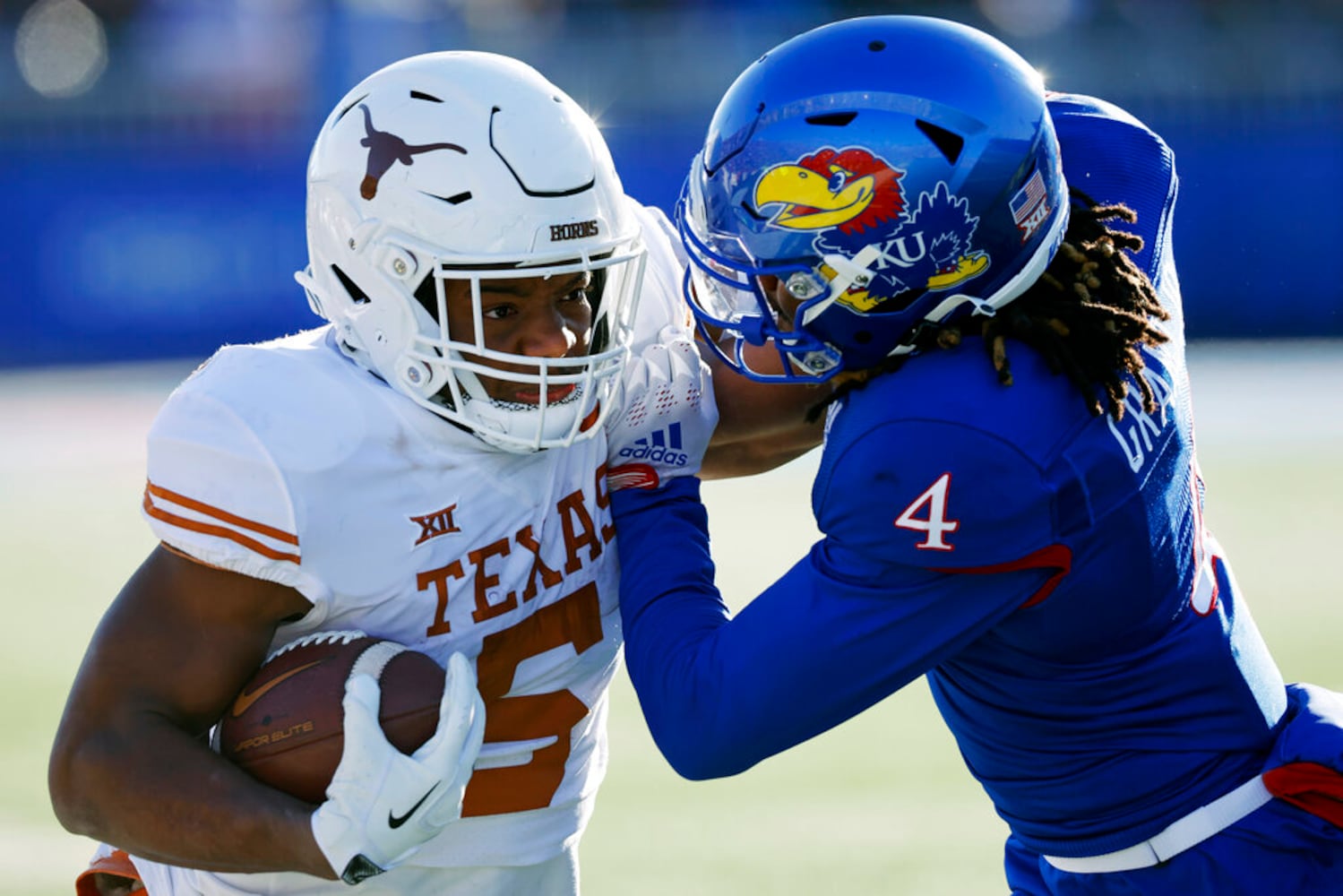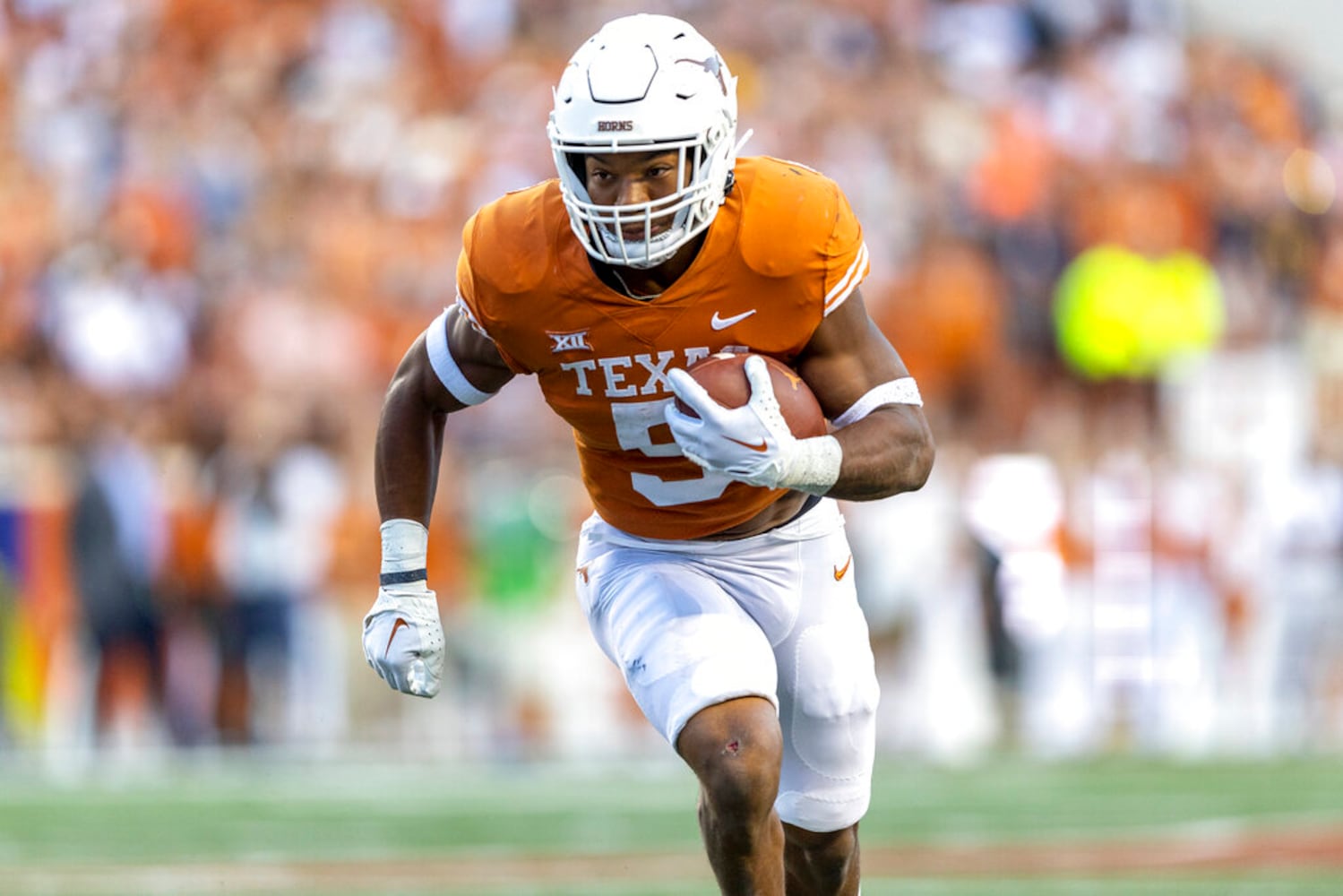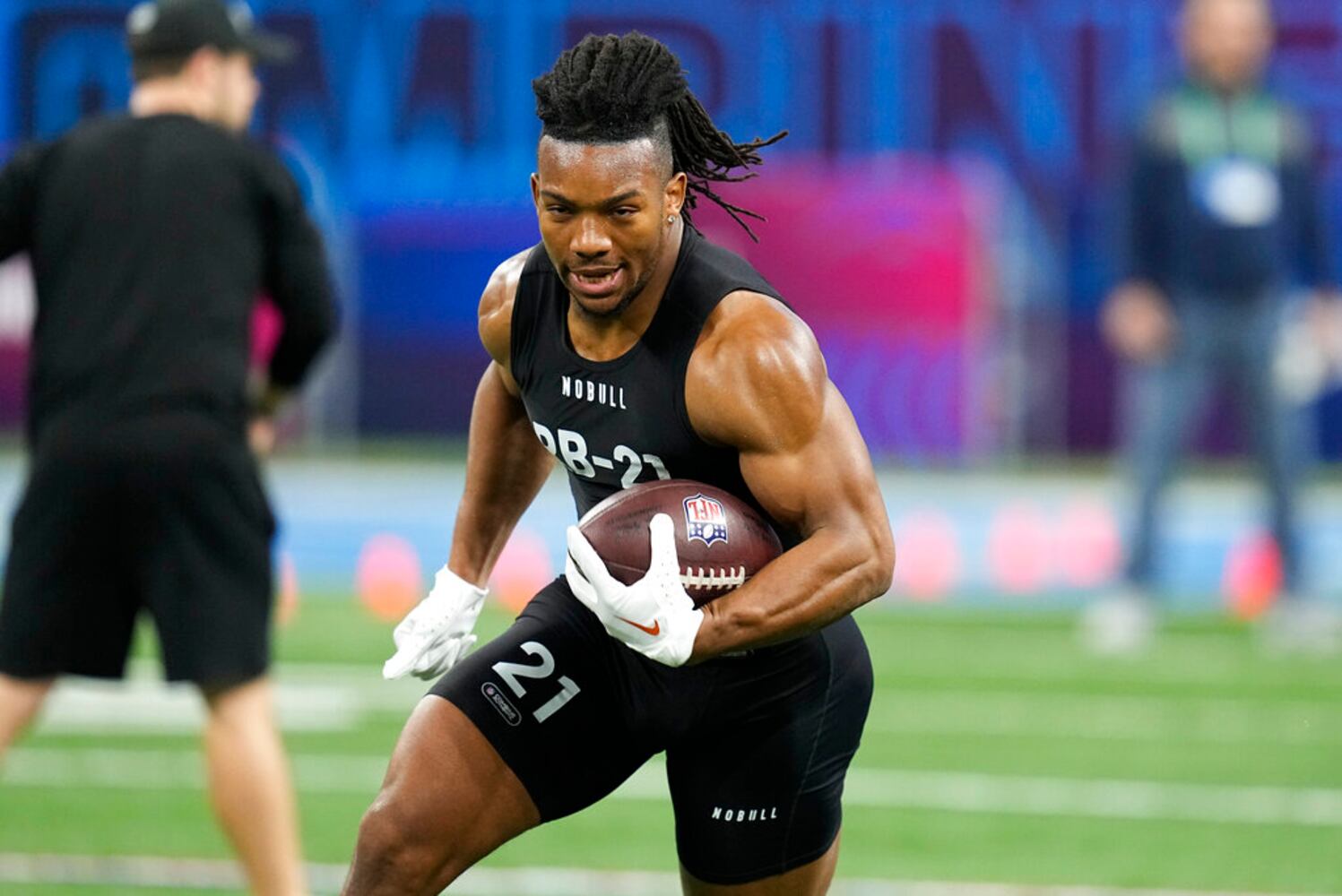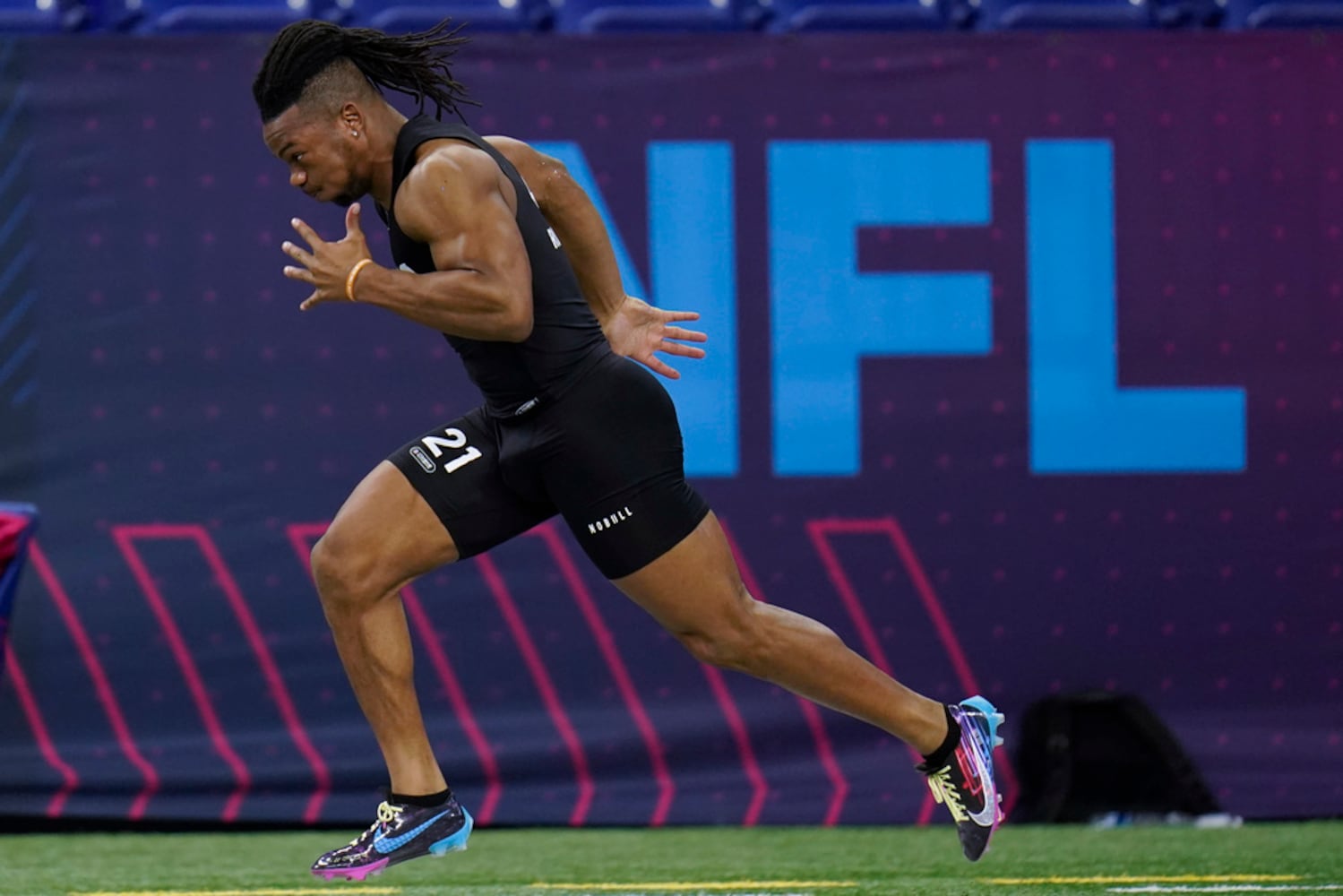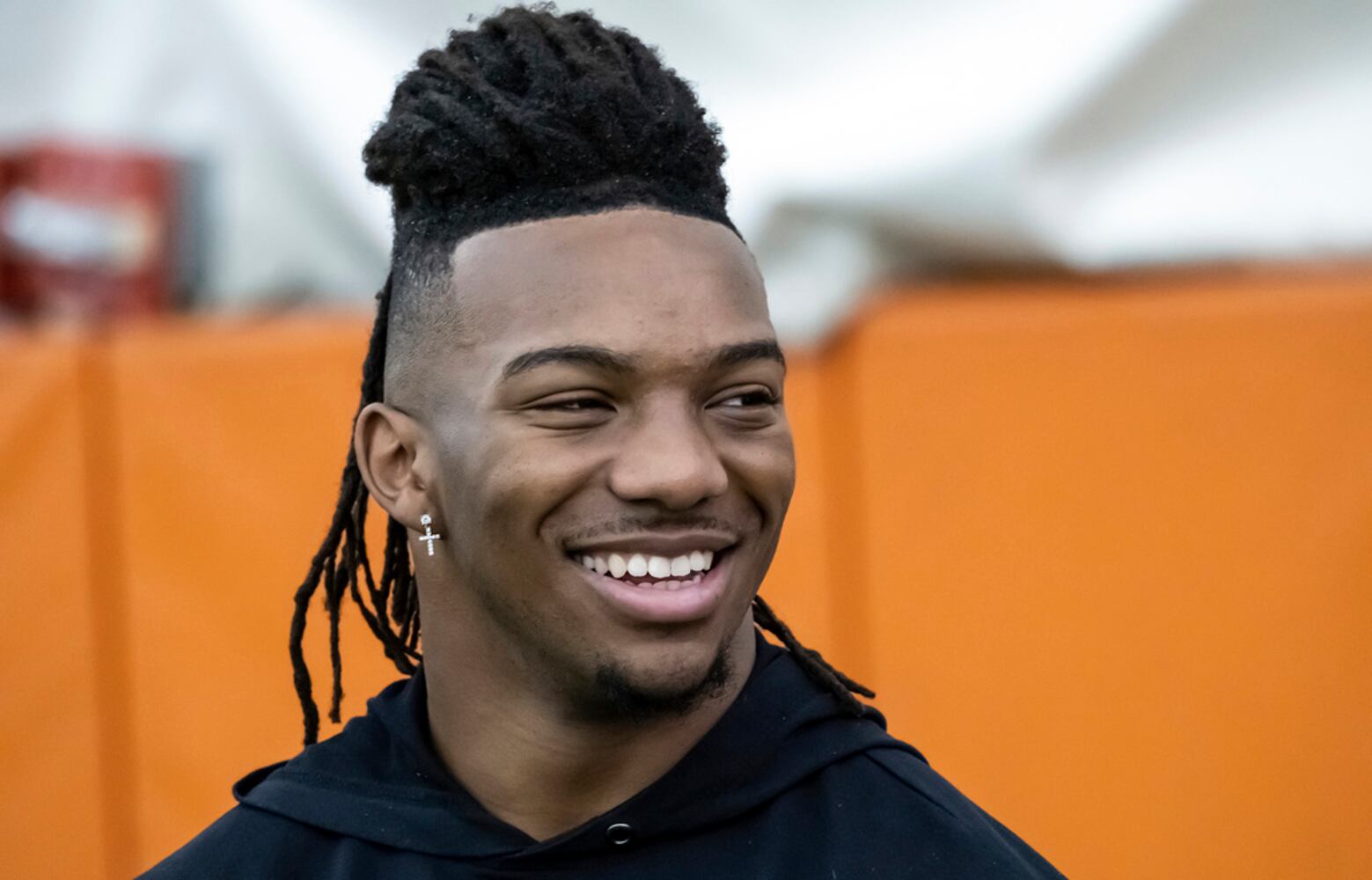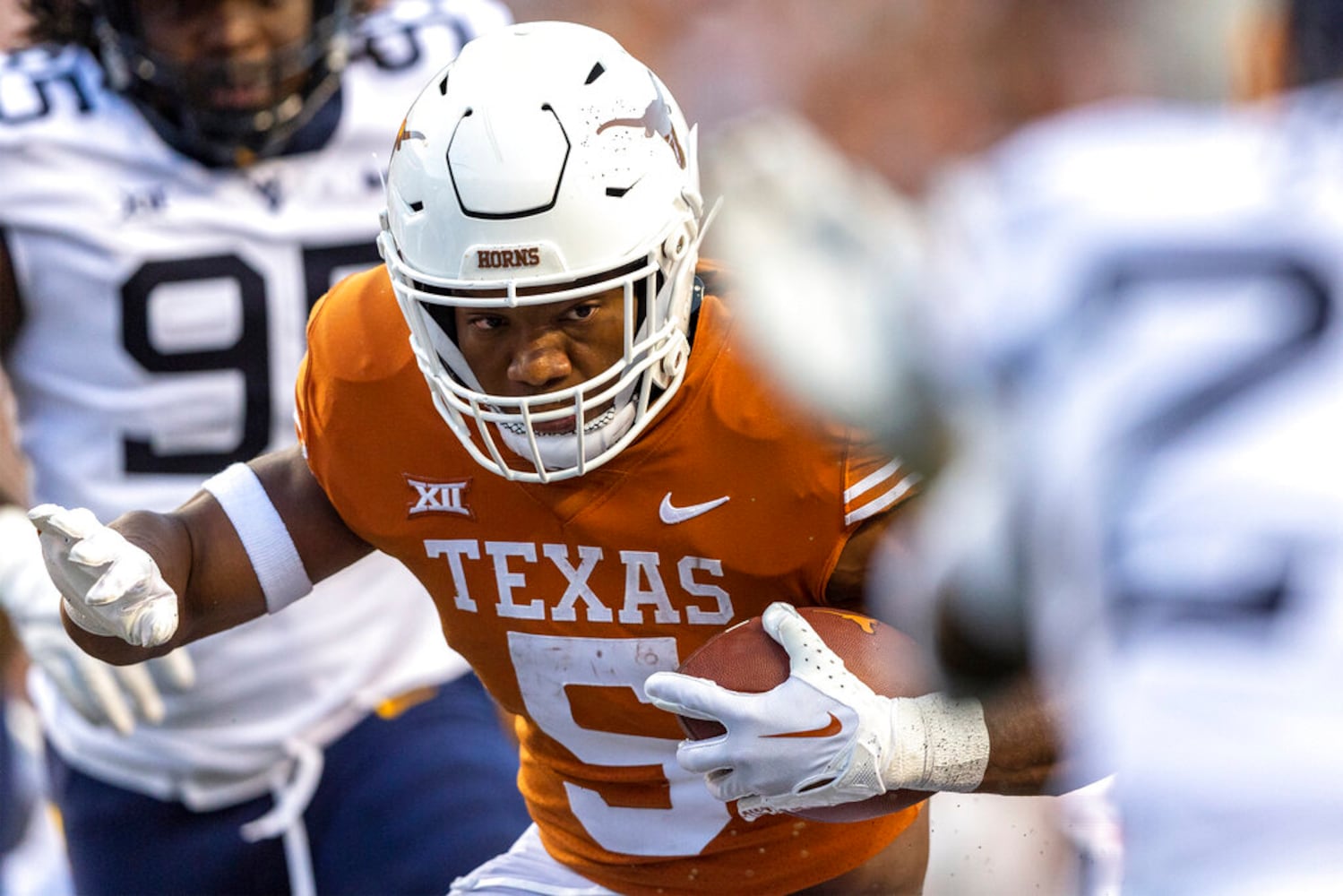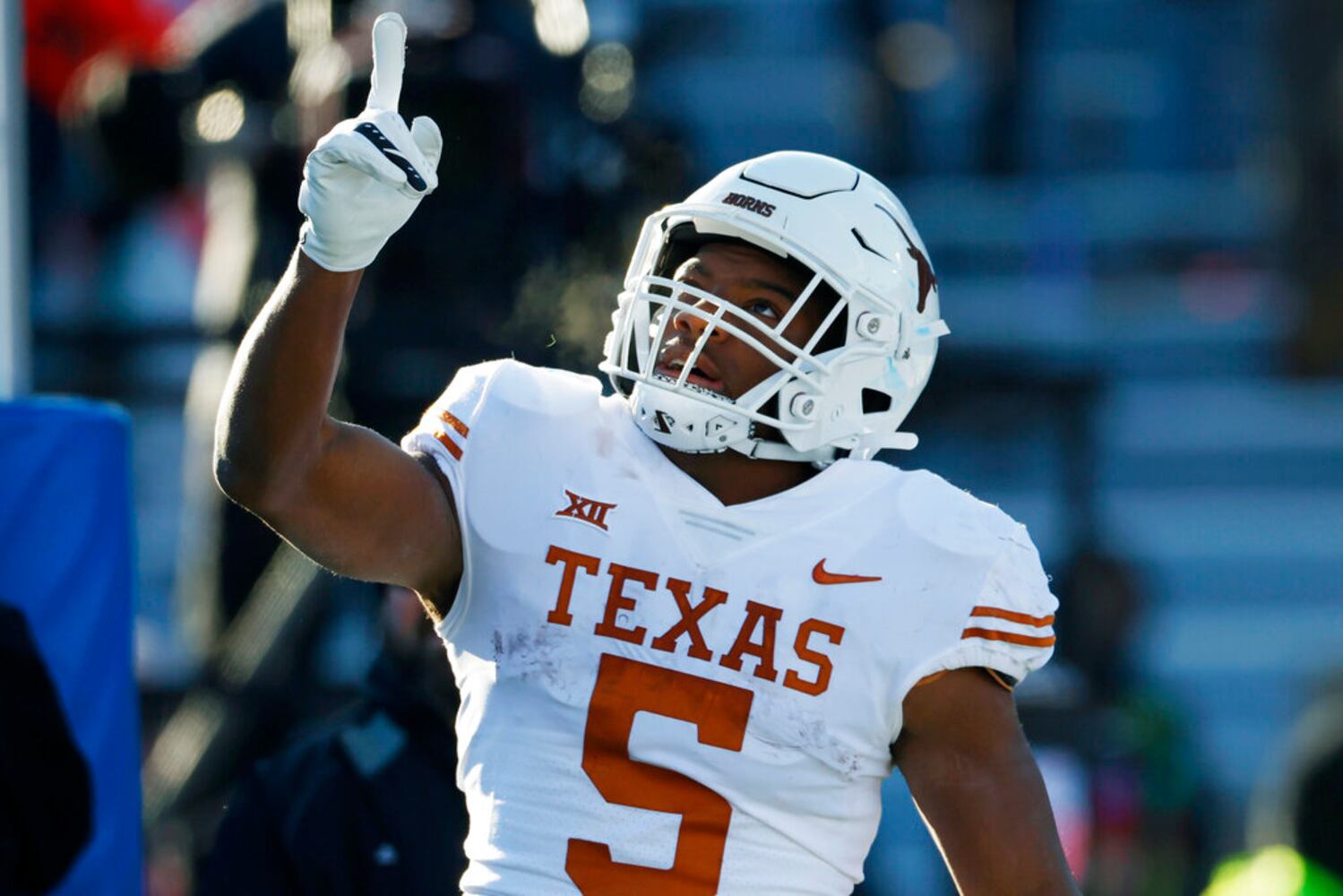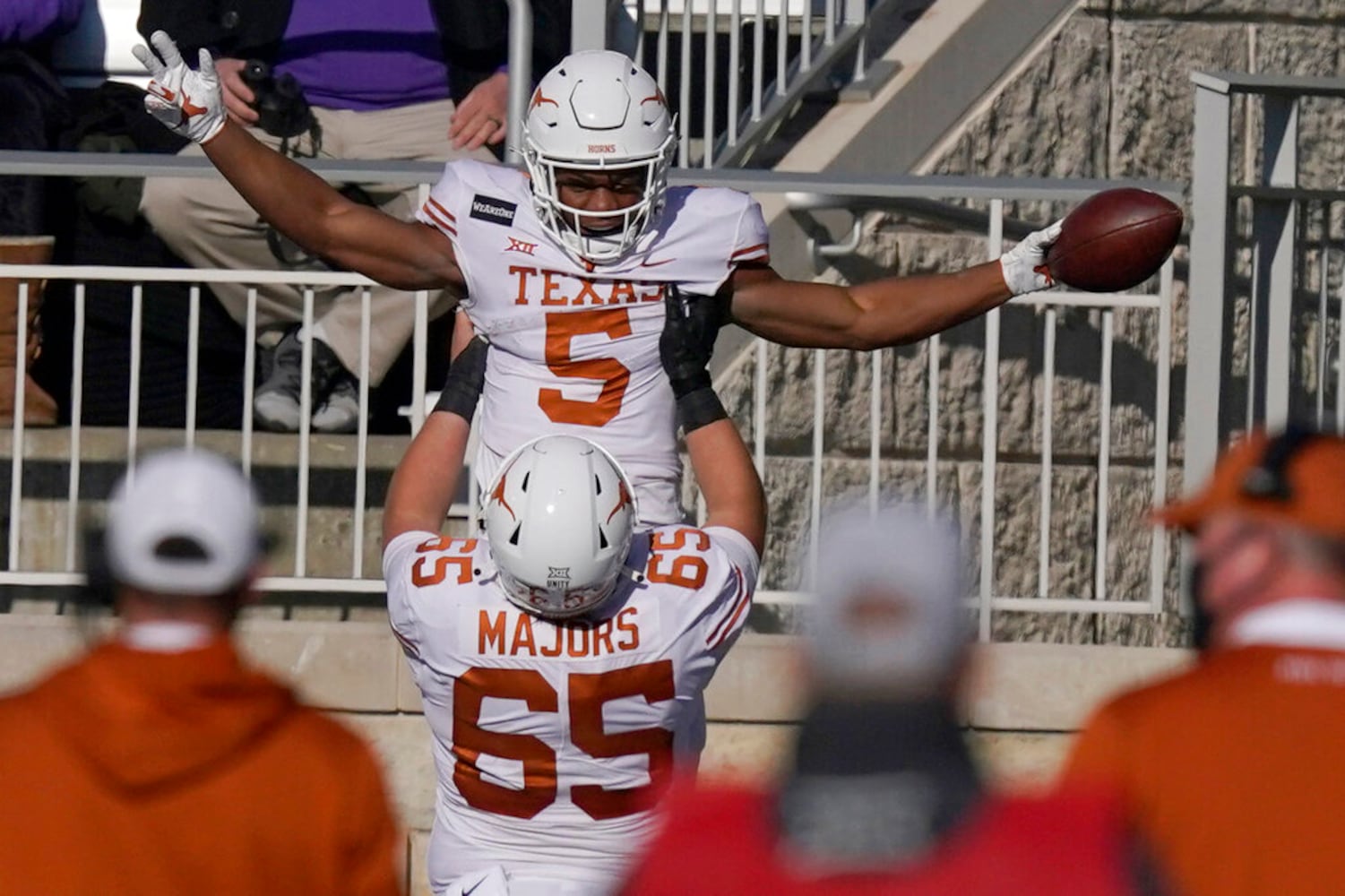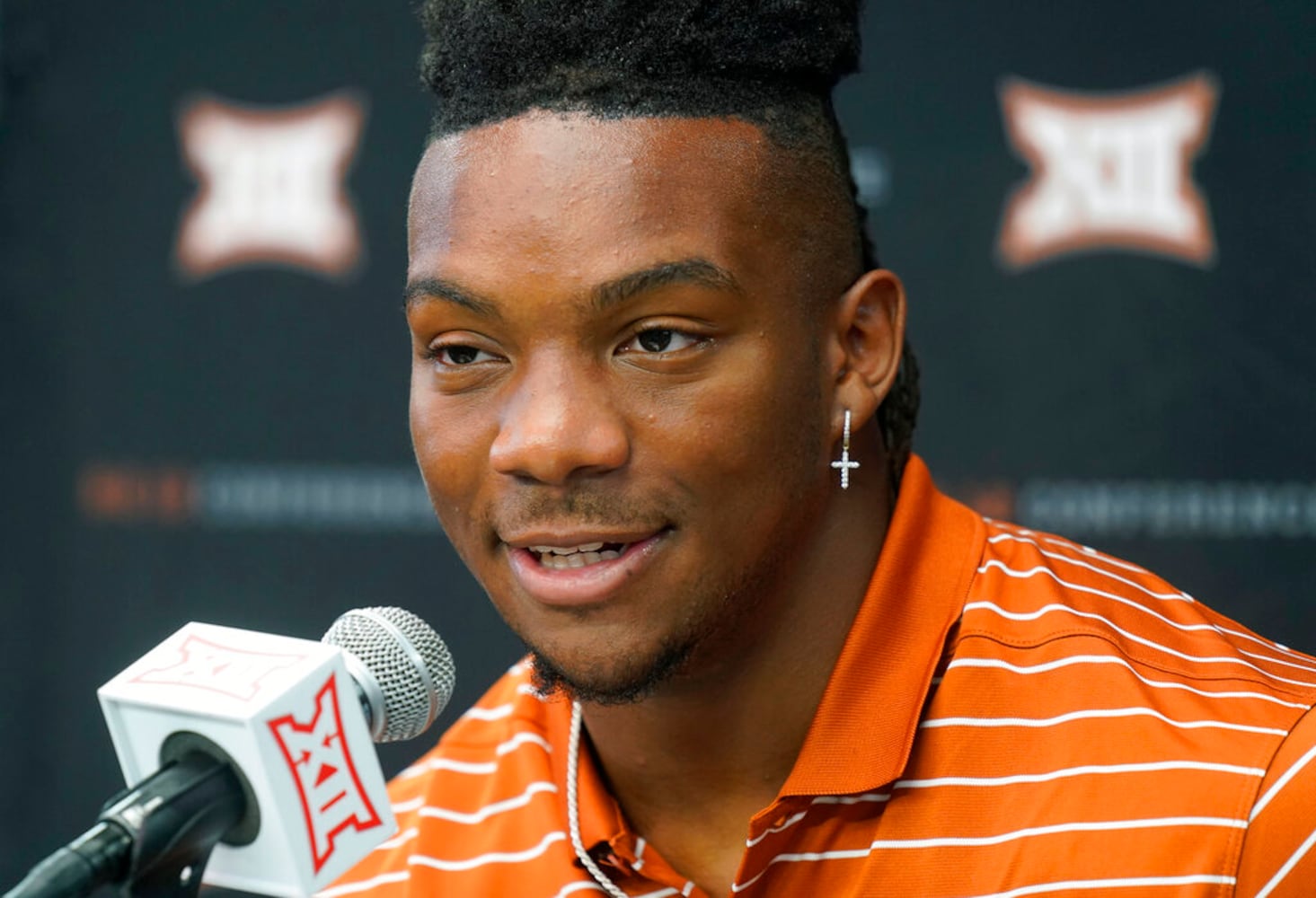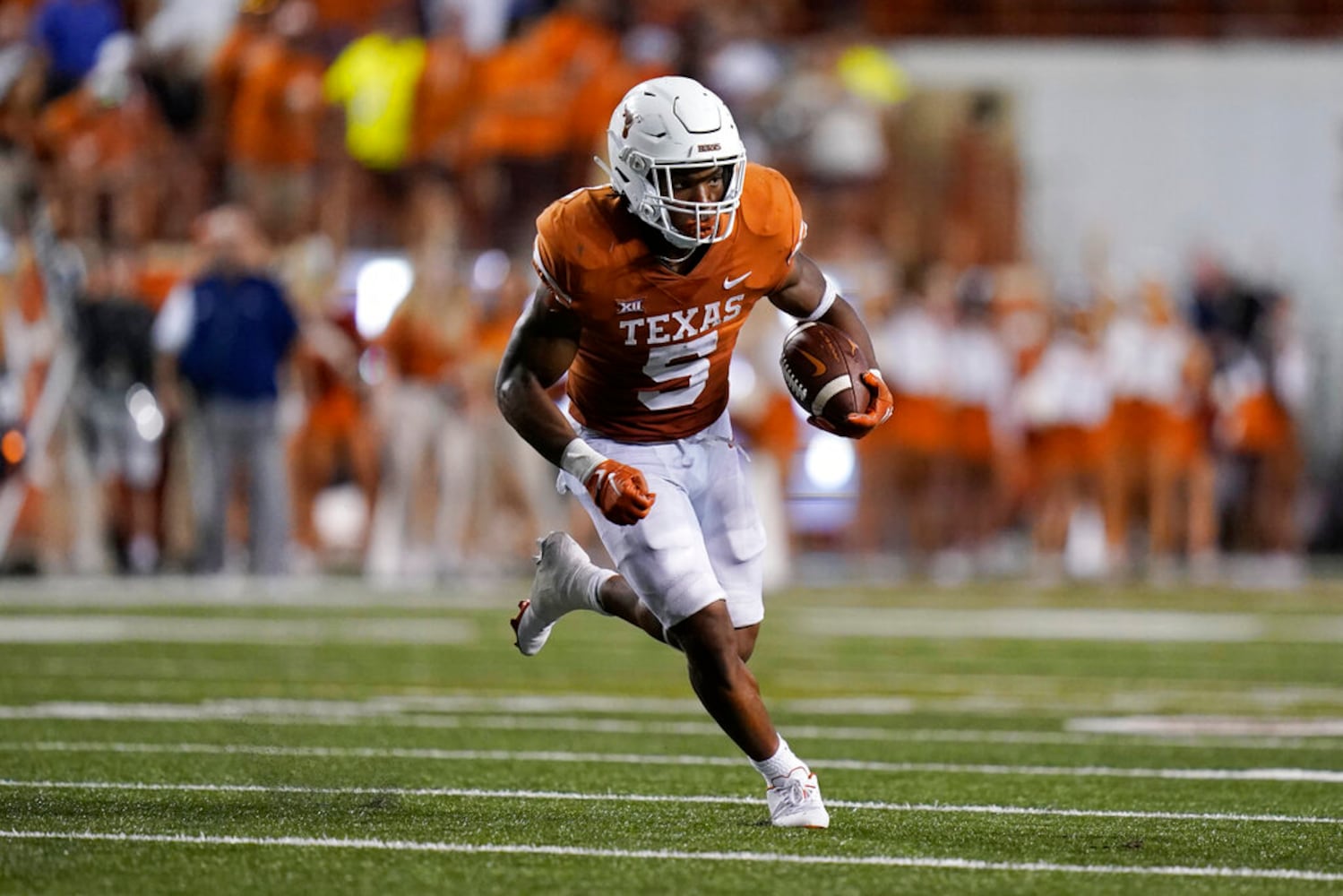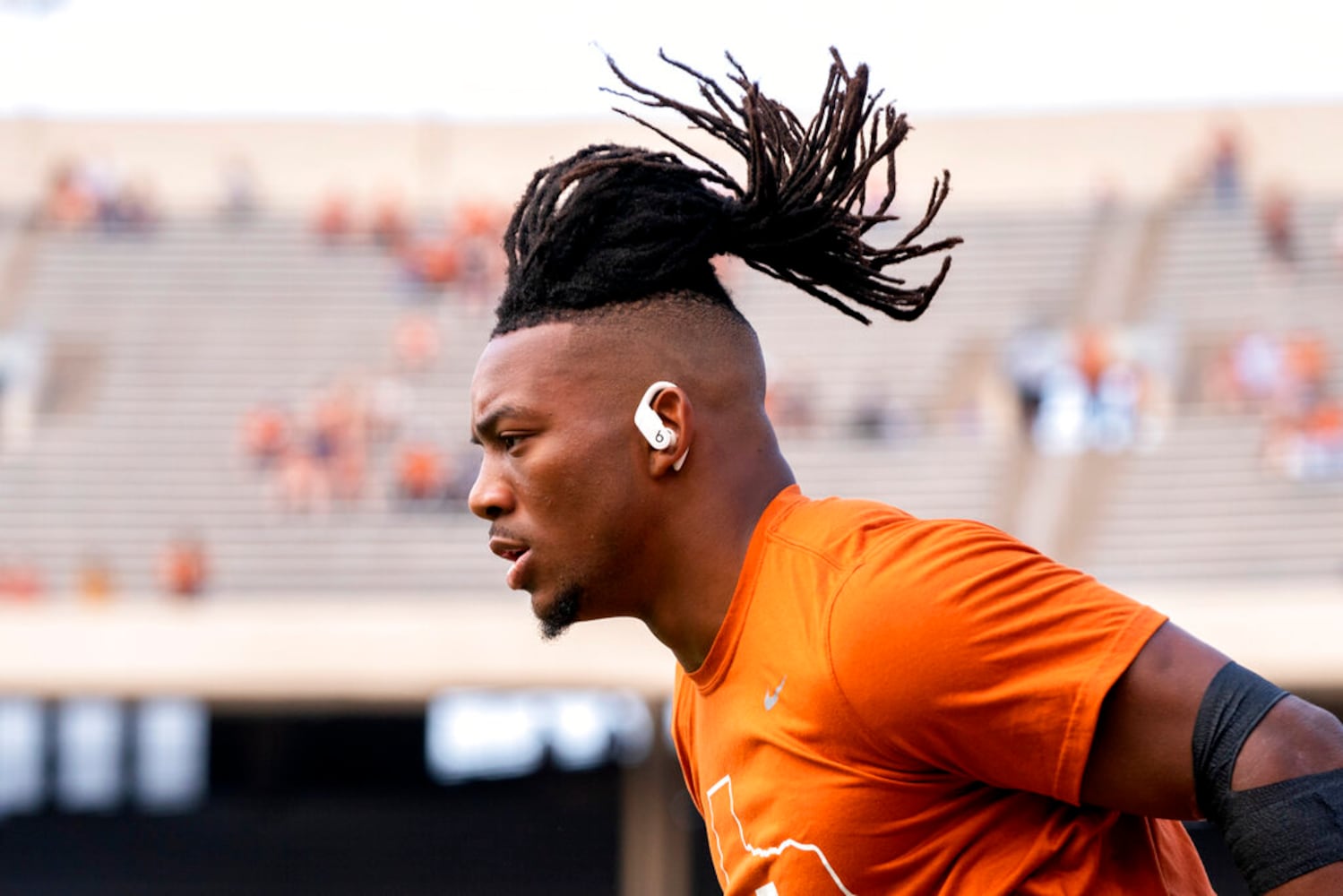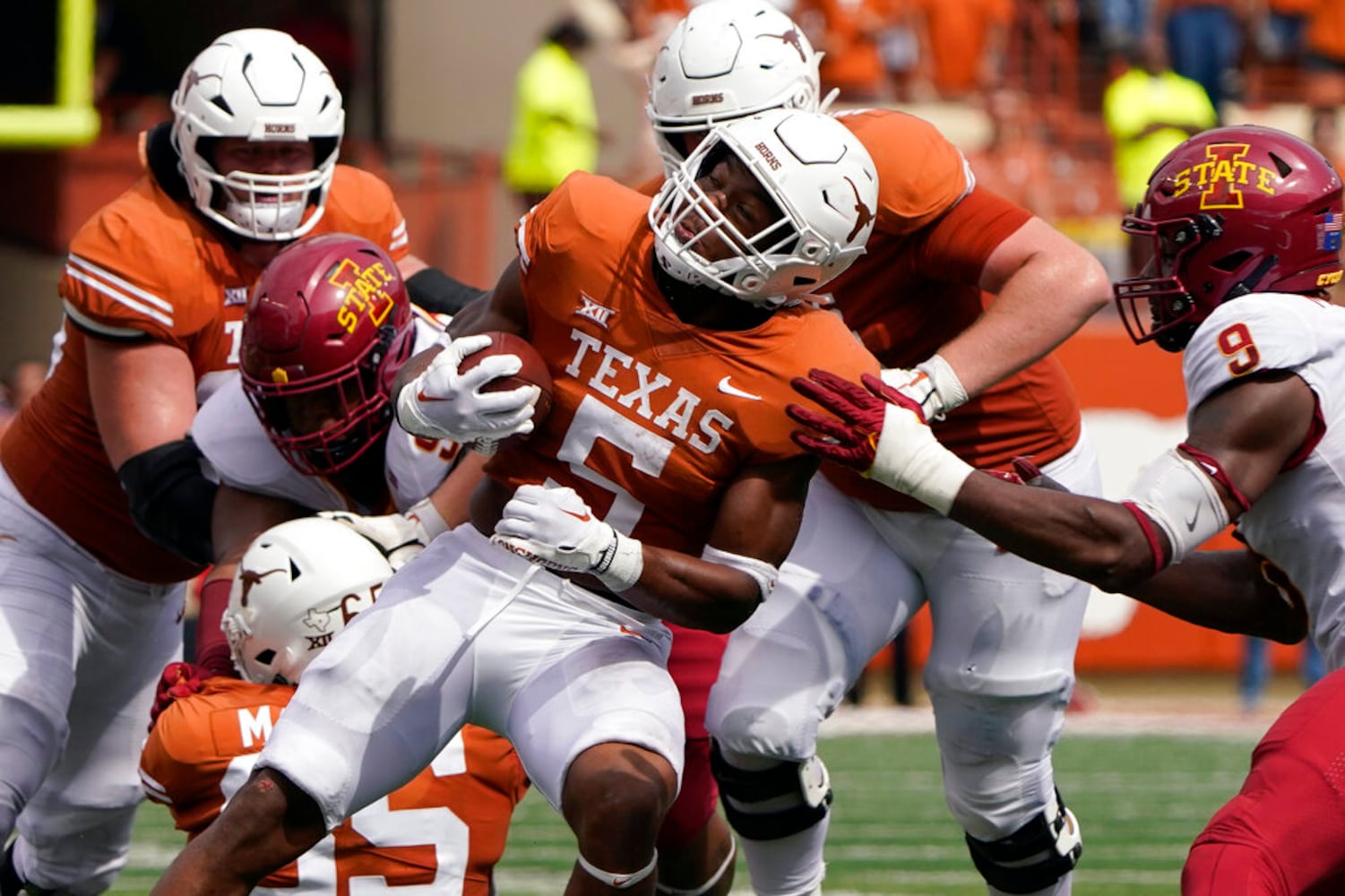Forty years ago, an assistant coach expressed how his philosophy of hoops differed from the head coach’s: “He worries about how we’re going to guard them; I want them to worry about guarding us.” The Falcons, who play football, are advocates of the same principle.
From 2003, when Dan Reeves was fired, through 2021, when Arthur Smith was hired, the Falcons worked one season – 13 games of a 16-game season, to be precise – under a head coach whose specialty was offense. Jim Mora? Former defensive coordinator. Mike Smith? Same. Dan Quinn? Same. The exception was Bobby Petrino, imported in 2007 to maximize Michael Vick, the quarterback he never got to coach.
Arthur Smith made his reputation as an offensive coordinator. Over three drafts, his Falcons invested a No. 4 pick on a tight end, a No. 8 on a wide receiver and now a No. 8 on a running back. This spree of skill-shopping could be mere coincidence. The guess, though, is that it reflects the desires of a head coach who calls plays and wants his offense to sing.
Defense used to hold sway. My favorite team ever is the 1976 Steelers, who started 1-4 but finished 10-4 with Mike Kruczek starting for the injured Terry Bradshaw. Over nine games, the Steelers pitched five shutouts and limited three other opponents to field goals. They yielded two touchdowns in nine weeks. That was defense.
A year later, the NFL changed its rules to juice offense. (Being quick on the uptake, the Steelers won two more Super Bowls with Bradshaw throwing long to Lynn Swann and John Stallworth.) Since then, the league hasn’t felt an urge to lend defenses any help. The league is fine with teams scoring touchdowns. Football Outsiders’ proprietary ratings metric puts more weight on offensive numbers.
We grew up hearing that defense wins championships. We still hear it, but it’s no longer true. The Eagles won a Super Bowl in 2018 in which they yielded 33 points. In February, the Eagles lost a Super Bowl in which they scored 35 points.
The Falcons of A. Smith believe they found their quarterback in Round 3 last year. Desmond Ridder will have at his disposal Kyle Pitts, the first tight end taken in 2021; Drake London, the first receiver taken in 2022, and now Bijan Robinson, the first running back taken in 2023.
We live in a time when everything revolves around the quarterback, but even Patrick Mahomes can’t throw the ball to himself. Over three Round 1s, the Falcons have outfitted themselves with best-in-class skill players. Consensus holds that, regarding most skill players, value-shopping is the way to go. But, as someone famous – maybe Terry Bradshaw – once said, “Fortune favors the brave.”
If this offense performs anywhere near capacity, the Falcons won’t be playing 20-17 games. We know Smith can scheme up a running attack. We know a competent quarterback can complete passes off play-action. We know because Chris Chandler, working for his sixth NFL club, took the Falcons to a Super Bowl in large part because Jamal Anderson rushed for 1,846 yards.
Watch Kyle Shanahan’s 49ers. Watch their usage of “21″ personnel (two backs, one tight end). Now imagine the two backs being Robinson and either Tyler Allgeier, the thousand-yard rookie, or Cordarrelle Patterson, among the more dynamic players of the era. Imagine Pitts as the tight end. Imagine London in this mix.
While you’re imagining, note this: In 2022, without Robinson and with Pitts mostly missing, the Falcons arrayed themselves in “21″ on 22% of first-and-10s. That was the fifth-highest total among the 32 teams. We’ve seen what’s coming.
Arthur Smith is building his offense that’s sleek and powerful, multi-faceted and hugely skilled. He wants his team to be, invoking another basketball-ism, hard to guard. Prepare yourselves to be entertained.
About the Author
The Latest
Featured
